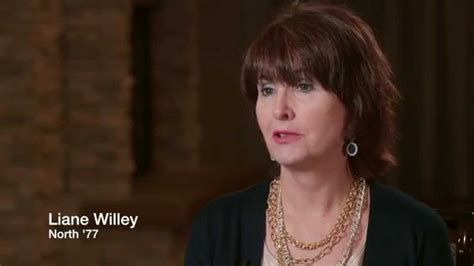A Quote by Greta Thunburg
I have Asperger's, I'm on the autism spectrum, so I don't really care about social codes. It makes you think differently.
Related Quotes
My autism is a very mild form. It was diagnosed at the age of 25, partly because it wasn't diagnosable as a teenager (this is Asperger's syndrome, specifically). But there were certainly traits within that condition, within the autism spectrum in general, especially at the high functioning end, that I think are best looked at as pluses.
I think one of the problems with the definition of autism is we keep expanding it. It started as "early infantile autism", and then it became "autism", and now it's "autism spectrum disorder". I'm not opposed to that from the standpoint of trying to broaden our vistas, and so forth. But from a research point of view, the term autism is lost in specificity.
As the diagnosis of autism is increasing the diagnosis of mental retardation is decreasing. And more and more on the other end, the high end, more children who are just a little bit off, who ordinarily you would not single out now are being described as perhaps Asperger’s syndrome or on the high end of the autism spectrum, so I don’t believe there is an epidemic.
Exploring Feelings for Young Children with High-Functioning Autism or Asperger's Disorder: The STAMP Treatment Manual offers practical recommendations and creative practices that will certainly help young children with high functioning autism or Asperger's syndrome overcome their struggles with the really tough issues blocking their positive growth and development. Therapists, educators and parents caring for autistic children who endure a heavy load of anger, distrust, difficult interpersonal relationships, poor self-esteem and self-doubt need this excellent book.
The thing is, autism is all different, you know, variables. And you start out with a certain amount of, you know, the point where the differences in the brain are going to just be a personality variant and, like, for very mild Asperger's. But you get into more severe kinds of autism where there's obvious speech delay, obvious abnormal behavior in a two and three-year-old child, you know, the initial neurology is different from case to case. But all children with autism are going to do better if they get really good educational intervention.
What do we know about autism in 2013? Autism symptoms generally emerge before age three and usually much earlier, often as language delays or lack of social engagement. Recent research suggests that autism can be detected during the first year of life, even before classic symptoms emerge. Indeed, the symptoms may be a late stage of autism.































